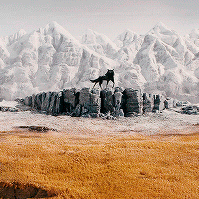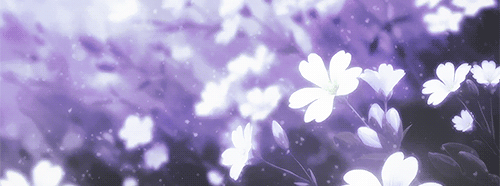FIN // Five // Grace Young
Sept 18, 2013 7:59:19 GMT -5
Post by Onyx on Sept 18, 2013 7:59:19 GMT -5

grace young
fourteen
district five
female
My name is Grace, and all that I am is destruction. My fingernails are short and flimsy, more like another layer of my beige skin than keratin armour. My hair comes out in clumps when I brush it, as rare as that is, but what still holds on is long, light brown and straw-like. Thick, dark eyebrows that stretch from my temple to the bridge of my small, flat nose are superscript for my slightly upturned eyes. My almost non-existent eyelashes do nothing to make my wide black pupils, and the thin circle of brown circling them, any more appealing. I know I’m ugly, and as I grow up, I’ll only get uglier.
My sister tells me that I was a beautiful baby. Full of joy and life, I never stopped laughing, the crease I’ve always had in the centre of my bottom lip stretched to invisibility by my bright, toothless smile. My hands, now long but too thin, too bony, were constantly grabbing for new, exciting objects. I could crawl all day without ever tiring, and was so reluctant to be picked up, sure I could manage my tasks on my own. Oh, how times have changed. Now I long to be held, to have the reassuring pressure of another person to calm me down. I have to sit to rest between activities, and new situations terrify me. I’d rather spend my whole life in the same routine, with the same people, places and events. Happiness is exhausting, impassivity my default emotion. My lips are dry, a white-pink that matches my high, shallow cheekbones. I haven’t smiled with more than my voice in a long time.
My healthy childhood ended the day my scientist father walked through the door with a lead-lined crate of radioactive material to study for improvement. It was about as long as my arm, as wide as my high, straight shoulders, but only as thick as my tiny waist. Curious. For nights, he would stay up in the room opposite mine experimenting and writing up results, and I would stay up with him, intently listening at my bedroom door for every clink, pencil scratch and gasp of realisation, until my mother padded in and begged him to come to bed. I’ve always been light for my age, so when I gathered the courage to tiptoe across the landing and peer at his hunched form, he didn’t notice a thing. The slab of material in his gloved hands glowed dully, mysteriously. It was fascinating, and my open mind wanted to know more.
The next night, I stayed awake until long after my parents were asleep. My mind was alive with expectation for what I knew I was going to discover, the exhilaration which I so easily rose to making sleep impossible. I counted time by my fluttering heartbeats, like I did when I was afraid or alone. Sixty beats, and it was safe to open my eyes again. Then I rose quietly, slipped soft shoes onto my long feet and crept to the ‘lab’ room. The crate was slightly ajar, leering at me and urging me forwards. The gloves hung on a hook on the far side of the room, too far for my racing mind to consider a good idea. I was so careless, so stupid. The disc gleamed in the dim light of a lantern, the imprinted letters which must have implied its properties cast into its surface. I longed to touch it, to see if it was as cold as it looked or something totally different. For a while I simply stared at this new treasure, but finally just inspecting it wasn’t enough. My fingers trembled as I lifted it, heavy, so heavy, and that surprised me, closer and closer to my face.
It’s true, that time flies when you’re having fun. I only realised how long I must have been standing there, looking at the incredible metallic slab when my eyelids began to droop. Suddenly, I was so tired. Too tired. I put the disk down in the crate but found I hadn’t the strength to lift my arms again and close the lid. I swallowed, turning to go, but my knees suddenly gave like string. Landing hard on my palms and elbows I tried to stand, though my head was lolling and my long legs shaking. I managed a few more feet, dragging myself with my fists, before I knew I had to give into the overwhelming tiredness. Sleep took me like a disease. And, soon enough, it had become a disease.
When my sister found me the following morning, white as a corpse and with a thin line of liquid vomit trickled from the corner of my mouth, she promises me that she couldn't describe her horror. Her and our mother both were certain I was dead. Father knew better - in fact, deduced exactly what had happened from the state of his study and my responseless body. He knew what would save me as well. We had never been a wealthy family, but even if we were - by our District's standards, we couldn't have afforded the treatment for radiation toxicity that I needed. For weeks I lay in bed, sick, feeble and terrified that each day might be the day that I died. Father remained confident, however, that with the medicine he could find in medical kits in the laboratories and with my own immune system, I would be able to fight off that ending myself.
The recovery process happened so gradually that at first I thought the change was a sign my dying day was drawing closer. I could lift my own limbs, though it felt like knives were being dragged deep across my joints every time I did, and then my voice returned to me, the vomiting spells subsided. Although it was only a small step, it was progress nonetheless. Itchingly slowly, my bodily functions returned to normal – and with the exception of my physical change and attitude, it was almost as if the incident had never happened, at all.
I see things differently, now. Everything is a risk, waiting to become a hazard as soon as I engage with it. I’ve never had a surprise party thrown, despite my closest friends begging persistently. I accept the worry of my parents while other fourteen year olds might protest. I am always so weary, so resigned, and love and attention are the only things that keep me active. Being different doesn’t embarrass me, as it might embarrass other children – because I know that it’s my fault I’m this way. I was a victim of my own intrigue, and nothing I can ever do can make that right again. I know the day will come when my body gets too weak to keep healing itself. It’s an inevitable truth that, maturely and rationally, I have just accepted.
Nevertheless, that day has not come yet, and until it does I won’t pity myself. Blame and spurn, perhaps, but never pity. Instead, I’ll live the rest of my life solemnly, reminded every time I move too quickly or think too hard that I am the only one at fault. And, if there was a way of undoing this, I would be the only one fix it.



































































